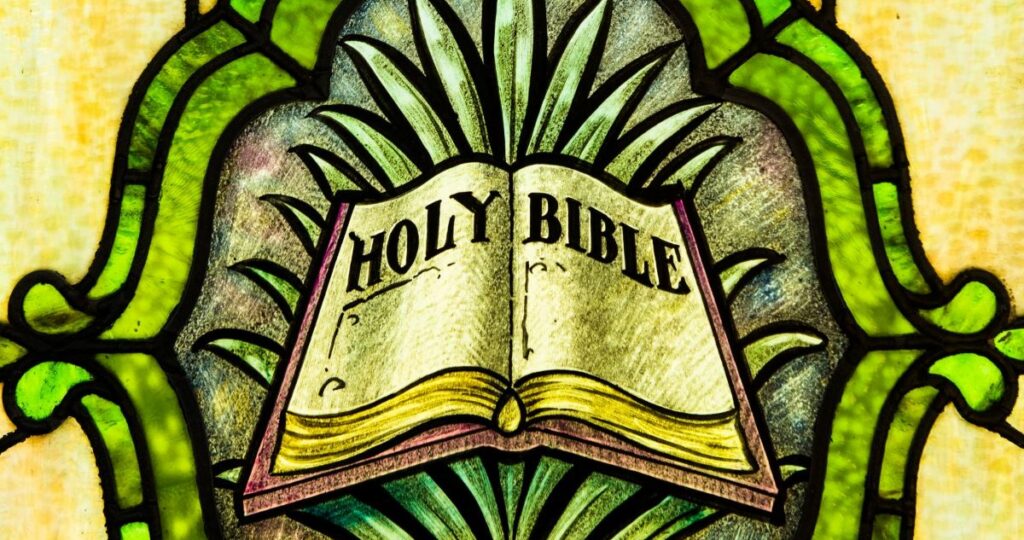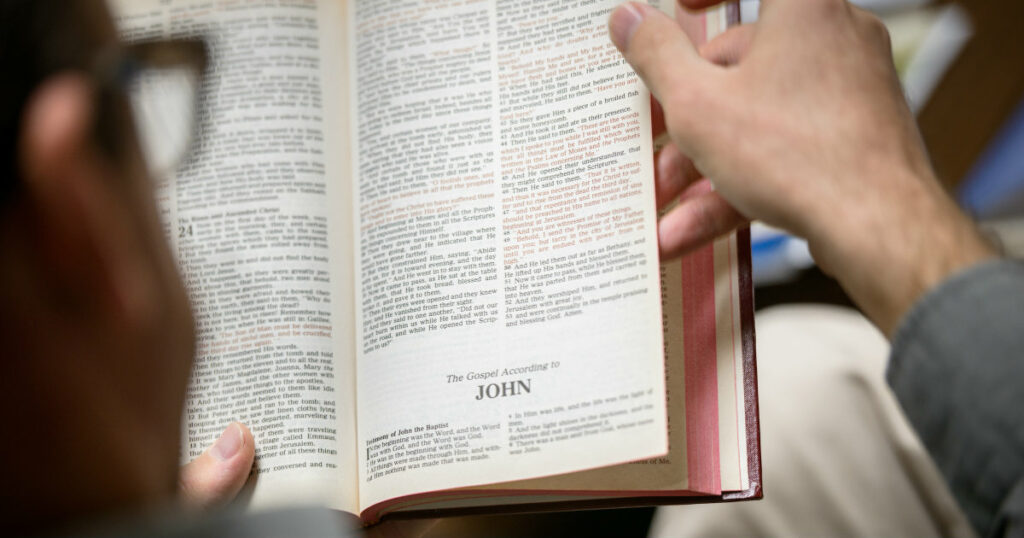by Matthew C. Harrison
There are plenty of Bible “difficulties.” There are dating challenges for biblical events. There are archaeological conundrums. There are apparent discrepancies between accounts of the same event. There are parallel passages with dissimilar wording. Events in the life of Jesus recorded in the Gospels appear to occur at different times, and much more. A great Bible like The Lutheran Study Bible with all its notes is tremendously helpful.
Whenever questions or apparent errors in the Bible confront me, several things encourage me. First, Christians from the earliest times have wrestled with these texts. Many others have likely had the same questions I have and have offered reasonable explanations. In perhaps an odd way, I’m comforted when I see that an early copyist monkeyed around with one of these challenging New Testament texts. He just couldn’t bear to leave the text alone when he found it hard to harmonize with another passage. We have so many early manuscripts, it’s often easy to determine where this has occurred. Your pastor is trained to spot these in his Greek New Testament.
I find it compelling that the Bible makes no claim to have been dropped from heaven on golden tablets (like the Book of Mormon). The Gospels are just what one would expect in reading four separate accounts by different men, sharing many of the same sources, but each being witnesses and talking to different witnesses. The Gospels breathe authenticity.
By the 20th century, the issue of the nature of the Bible’s divine inspiration and inerrancy had become an acute issue in many Lutheran churches. The problem had existed in the Lutheran churches of Germany since 1750. Rationalists, who trusted in reason as the basis of religious truth, opposed the idea that God intervened in the events of the world. The idea of a divine God-man, born of a virgin to take upon Himself the sins of the world, rising from death for the justification of the world, they regarded as myth. By 1900, the great German universities reduced Christianity to ethics — law. As one proponent, Adolf von Harnack, put it: Jesus’ message, salvaged from the mythical stories of the Bible, was simply the fatherhood of God and the brotherhood of man.
The philosophy of Hegel also gained huge influence in Germany and beyond. All history, he believed, is about opposing forces clashing and producing a new idea: thesis-antithesis-synthesis. A thesis or idea would become prevalent and then generate its opposite, its antithesis. They conflict with one another until they form a new idea through the combination of thesis and antithesis, a synthesis of the two views. This synthesis becomes the new thesis that generates another antithesis.
In science, this meant evolution’s “survival of the fittest.” In political theory, this meant communism. In the study of classic and biblical texts, this meant ideologically and politically motivated editors constructing texts out of previous sources to achieve religious and political ends. The Bible was not in any way divinely inspired (as it claims repeatedly about itself and as Jesus believed it was), but a human creation.
Even quite conservative Lutherans who had come out of the radical schools of the 19th and early 20th centuries, who rejected most all of the Hegelian ideas, struggled with confessing the absolute inerrancy of the Bible. Hermann Sasse was one such scholar. He had been a student of von Harnack, and in the wake of the devastation of World War I Sasse turned his back completely on his teachers and toward Luther, the Scriptures and the Lutheran Confessions.
In the LCMS, Concordia Seminary, St. Louis, professor Martin Scharlemann famously stated in the late ‘50s that the Bible, which is inerrant in all matters for faith and life, contained errors. He got this directly from Sasse. Both certainly believed in the incarnation of Christ, the miracles of the Bible and Christ, the efficacy of the Word of God, salvation alone in Christ and, indeed, all the creedal doctrines. But they could not quite make the full confession of inerrancy, meaning the Bible contains no errors in doctrine, history or anything else it states. Thankfully, Scharlemann ceased to promote this position, and Sasse also backtracked, neither of them supporting what culminated in Seminex.
Sasse did (prior to his moderation on this point) criticize the great 17th-century Lutheran scholars — so significant for the theology of the LCMS — as being akin to fundamentalists with non-Lutheran aims, because they asserted that one must believe first in the inerrancy of the Bible and only then be led to believe in Christ. Sasse leveled this criticism at great theologians of Lutheranism’s past, including Francis Pieper (1852–1931), who served as president of both the LCMS and Concordia Seminary. Sasse was a great Lutheran. In fact, Robert Preus wrote that he was among the three greatest Lutherans of the 20th century. But his criticism was misguided here.
In fact, Pieper, our greatest LCMS theologian who is still studied at our seminaries today, addressed Sasse’s concern. He wrote:
In dealing with an unbeliever we cannot begin with an attempt to convince him of the divine authority of Scripture. We must first bring him to the knowledge of his sins and to faith in Christ, the Redeemer from sin. We should preach to him on the basis of Scripture — without discussing the authority of Scripture — repentance and remission of sin. If a man has in this way — and there is no other way — become a Christian … then he will know that the Word of Scripture is God’s Word, just as the children of God among the Jews knew and received the word of Christ spoke as God’s Word.[1]
Do we require or assert or force people to first believe in a perfect book and thus bring them to Christ? No. We proclaim Law and Gospel, which create faith in Christ. The Christian then recognizes in the Holy Scriptures the voice of Jesus. Simple as that.
The matter of the inerrancy of Holy Scripture is a matter of faith, not sight. We confess the original manuscripts written by the apostles and prophets are inerrant. Mistakes have occurred here and there in transmission. It’s easy in 99.9% of the cases to determine why this has happened. Some teachings in the Bible are difficult. Other things don’t appear to be easily reconciled. But in the end, we do what Luther did, and “doff my hat to the Holy Spirit and confess that he knows better than I do.”
–Pastor Harrison
[1] Francis Pieper, Christian Dogmatics, vol. 1 (St. Louis: Concordia Publishing House, 1950), 137–138.






